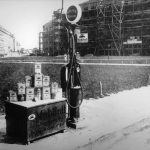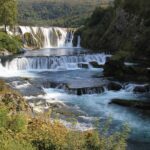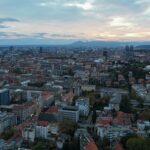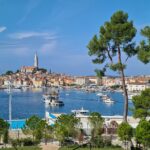Our favourite red-umbrella market is 87 today!
On September 1, 1930, at 8 a.m., Zagreb’s mayor at the time, Stjepan Srkulj, officially opened the new market in the centre of the city, at Dolac.
Dolac is such a crucial part of the life of the city that it sometimes seems that it’s always been here, but our favourite red-umbrella market is actually less than a hundred years old!
Romulić & Stojčić
Originally, there was a market at Ban Jelačić Square,
Tržnice Zagreb
but the city government decided that a more adequate space was needed and started contemplating places such as Britanski trg, Martićeva ulica, Vlaška ulica in 1905, until six years later, a decision was reached to build it at Dolac.

1929
The city started buying properties from the inhabitants and famous Zagreb architect Viktor Kovačić was in charge of the design and, even though his idea was to build a section of the market at Kaptol, this idea was abandoned, so the entire market was built at Dolac.

1935
Dolac used to be a medieval type of city neighbourhood, stretching from Opatovina on the north to the southern wall of Kaptol (Pod zidom Street, which is still there), and St. Mary’s Church, built in the 13th c., with a monastery and a cemetery on the west. The cemetery was relocated when more houses were built there in the 18th c., and it was forgotten until the construction started, when 200 skeletons were dug out, together with numerous objects from the Medieval Period and Early Modern Times, including religious medallions from pilgrimages.

Dolac was a poor neighbourhood, with narrow, winding streets, and small, wooden houses.
In 1913, it looked a lot like Skalinska:



1926
In 2006, a statue to honour the “kumica” – a typical seller at the market – was added to the market. The most recent addition was a mural featuring a motive from a painting by Vlaho Bukovac, part of Outings project by Julien Casbianca.
The market is full of bright red umbrellas, called the Šestine Umbrella, one of the most typical symbols and souvenirs of the city. Did you know that there’s a very romantic story behind them? Read more about it here.
Take a look at what the market and its people looked like through the ages below:

1932

1937

1940

1950

1966

1970s

1980s
Photos from Zagreb – kakav je bio nekada, Facebook.








